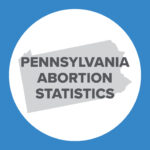Charlotte Lozier Institute Responses to Sage Retractions
The Charlotte Lozier Institute (CLI) and associate scholars are facing an unprecedented attack on our research. We believe that because our research has been widely read and cited, including in prominent legal contexts, we are now subject to unprovoked and partisan assault. Sage Publishing, an academic publishing company, retracted three of our studies on February 5, 2024. This action is meritless because, among other things, Sage to this day has advanced no legitimate objection to any findings of the studies.
For over a decade, CLI has prided itself in the pursuit of quality, credentialed, peer-reviewed scientific and medical research. We remain committed to that pursuit regardless of any ideological attempts to silence and suppress our research studies and our network of scholars.
The responses below address some of the frequently made claims or asked questions about CLI’s research and the retractions. Please also check out our website on this situation: Assault on Science.
Question: What is your reaction to the retractions?
Answer: To date, Sage has advanced no valid objection to their findings and has shown no evidence of any major errors, miscalculations, or falsehoods. Our team of researchers has refuted every single critique about the research and we encourage all to read the studies to understand the reasoning behind the methodology and our rebuttals to the critiques, which can be found here and here. There is no legitimate reason for Sage’s retractions.
Sadly, this incident points to a larger, newer phenomenon, which is that many of our scientific institutions and publications no longer stand in defense of open inquiry. Rather, we’re seeing a biased elite faction across the medical community with all the power attempting to suppress any research that cuts against their approved, pro-abortion narrative. Scientific research and publication should be grounded in science, not driven by ideology.
Question: Sage cites two subject matter experts who “identified fundamental problems with the study design and methodology, unjustified or incorrect factual assumptions, material errors in the authors’ analysis of the data, and misleading presentations of the data” in their retraction notice. What is your response?
Answer: We encourage everyone to read the studies in full as they fully address the authors’ methodology and approach to the research. Responses to more specific questions regarding the research can be found here and here.
We used the best quality data from Medicaid in a straightforward and transparent approach with the intention to track all emergency room visits and then further focused in on those specifically related to pregnancy, which resulted in our groundbreaking study. This approach was intended to provide a review that is more comprehensive than any other research on the topic.
Our study was designed to capture the entire ER burden of abortion drugs and abortion surgeries, and what we found is the rate of pregnancy-related ER visits within 30 days of taking abortion drugs increased over 500% over the study period. That should be of great concern to everyone. Right now, the only abortion-related adverse event the FDA counts is maternal death, completely ignoring instances of extended bleeding, infection and more which leaves major gaps in the full post-abortion clinical picture. We must investigate further why these women are increasingly showing up in the ER after an abortion. This demands further research and we’re perplexed by the scientific community’s lack of curiosity regarding these alarming trends.
Question: Why didn’t the authors of the studies disclose their affiliations as “conflicts of interest”?
Answer: The authors fully complied with Sage’s conflict disclosure requirements. They reported their organizational affiliations, as well as CLI funding of the study, as part of the submission for publication. In fact, the ER study includes 10 mentions of CLI and the authors’ professional status or relationship there.
We also demand to know why Sage has not required researchers affiliated with pro-abortion institutions to report their employment as a “conflict of interest.” There are no disclosures in this study by the pro-abortion Guttmacher Institute or this study led by an abortionist with all authors affiliated with the Bixby Center for Population, Health, and Sustainability. This blatant double standard is unacceptable.
Question: What is your response to the fact that a peer reviewer for all three studies had a CLI affiliation?
Answer: Sage uses “double-anonymized” review, meaning neither the author nor the reviewer knows each other’s identities. The reviewers should not have been informed that CLI participated in this paper and there is no information to the contrary. Considering Sage had exclusive control of the review process including the selection of the reviewers, it is entirely the responsibility of the journal, not CLI.
Question: Do you believe the graphs in figures 2 and 3 of the 2021 paper were misleading in labeling the two Y axes differently?
Answer: The reasoning behind the use of the dual axis is clearly explained here. We also explain in the original study why we chose the dual axis. Lastly, Sage themselves noted in the initial retraction notice that the use of multiple axes to present data “was not unusual.”
























